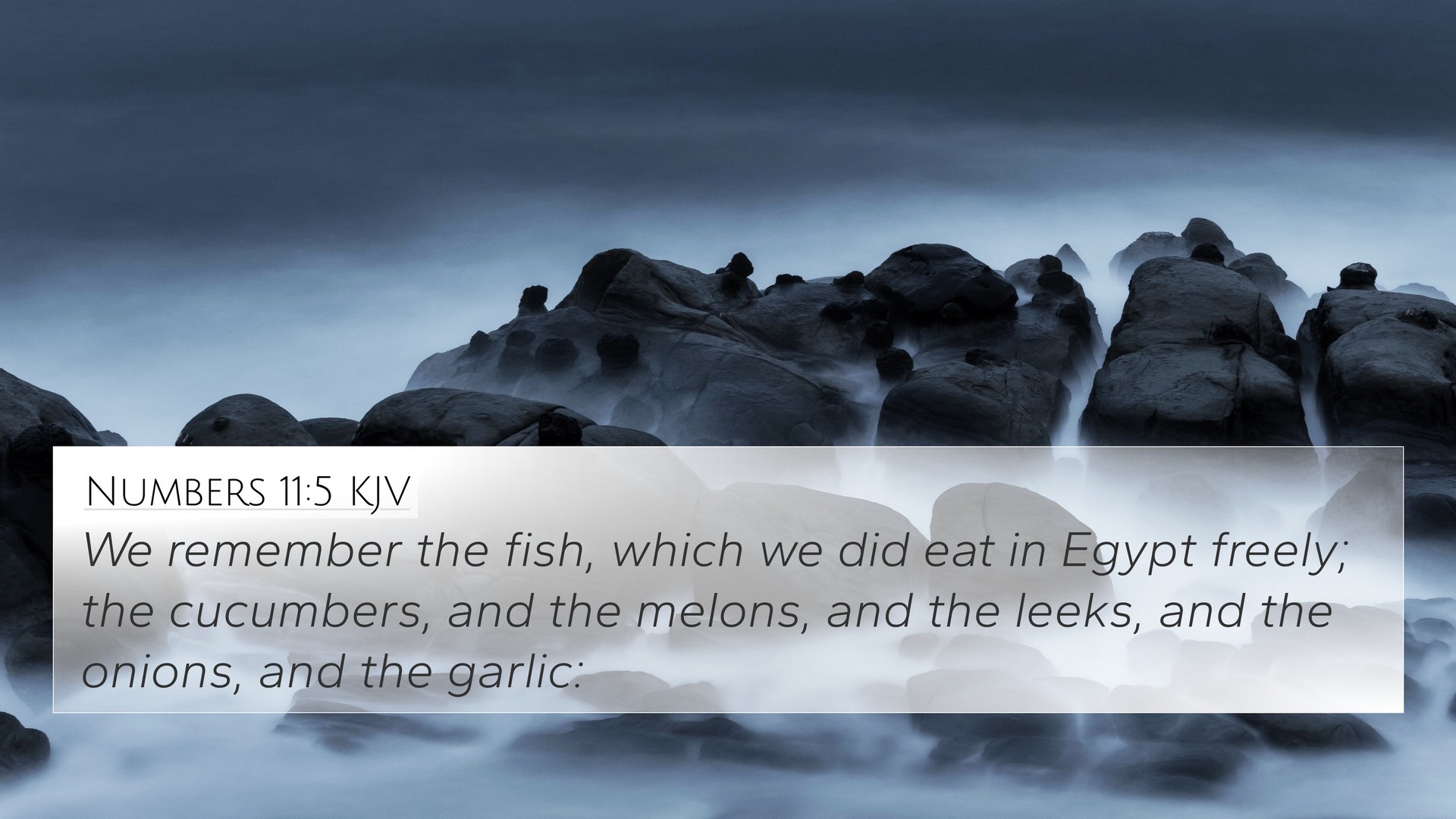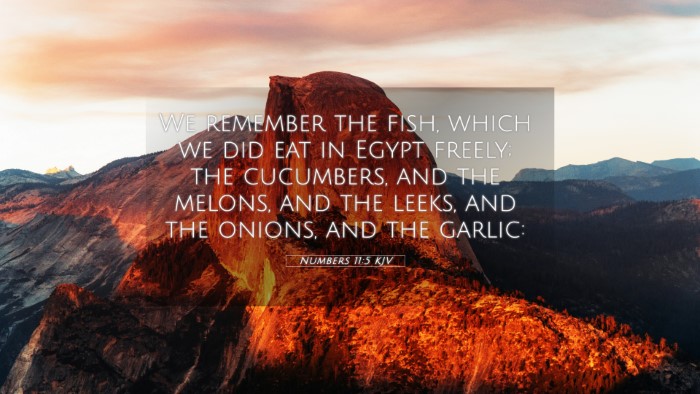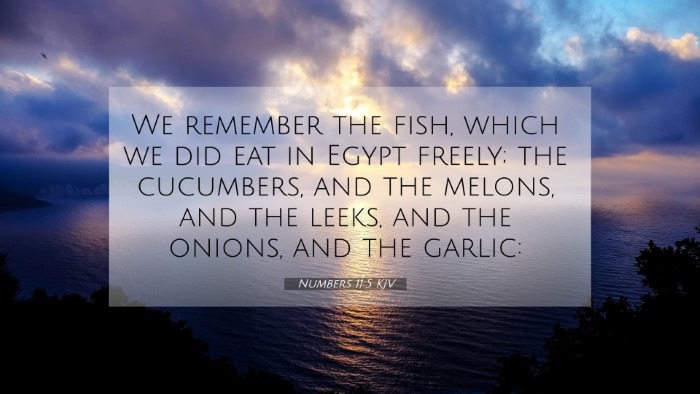Understanding Numbers 11:5
Numbers 11:5, in the context of the Israelites' journey in the wilderness, reflects a moment of dissatisfaction and desire for the comforts of the past. The verse states:
"We remember the fish which we did eat in Egypt freely; the cucumbers, and the melons, and the leeks, and the onions, and the garlick;"
Verse Meaning and Interpretation
This verse highlights the nostalgia and longing of the Israelites as they recall the food they enjoyed in Egypt. They express their dissatisfaction with the manna provided by God. Let's explore the insights shared by renowned public domain commentaries.
Commentary Insights
Matthew Henry:
Henry emphasizes the Israelites' inclination to remember the pleasures of Egypt, forgetting the bondage they suffered. Their focus on the delicacies they ate in slavery reveals a tragic human tendency to idealize past experiences despite their associated pain.
Albert Barnes:
Barnes points out the Israelites' shift in memory from gratitude towards God’s provision to a longing for their former life. This reflective moment underscores how easily we can become dissatisfied with divine blessings when we compare them with worldly temptations.
Adam Clarke:
Clarke notes the significance of the specific foods mentioned, symbolizing their longing for the richness of life they perceived in Egypt. He suggests this craving indicates a lack of faith in God's ability to provide for their needs, demonstrating a spiritual crisis amid physical provisions.
Key Themes and Reflections
- Memory and Nostalgia: The verse highlights how memories can sometimes cloud our judgment and lead to discontent.
- Spiritual Provision: It reflects the importance of trusting in God’s plan, recognizing His provision may not always align with our desires.
- Longing for Comfort: It illustrates the natural human tendency to long for comfort, especially in difficult times.
Cross-References for Further Study
Numbers 11:5 can be linked with several other Bible verses, illustrating common themes of discontent and desire for past comforts. Here are some related verses:
- Exodus 16:3: "And the children of Israel said unto them, Would to God we had died by the hand of the LORD in the land of Egypt, when we sat by the flesh pots..."
- Psalm 78:18: "And they tempted God in their heart by asking meat for their lust..."
- Philippians 3:19: "Whose end is destruction, whose God is their belly, and whose glory is in their shame, who mind earthly things."
- 1 Corinthians 10:5-6: "But with many of them God was not well pleased: for they were overthrown in the wilderness. Now these things were our examples, to the intent we should not lust after evil things..."
- Hebrews 3:16: "For some, when they had heard, did provoke: howbeit not all that came out of Egypt by Moses."
- Matthew 6:31-32: "Therefore take no thought, saying, What shall we eat? or, What shall we drink? or, Wherewithal shall we be clothed?"
- James 1:14: "But every man is tempted, when he is drawn away of his own lust, and enticed."
Conclusion
Numbers 11:5 serves as a reminder of the importance of perspective in our spiritual journey. The Israelites’ complaint invites reflection on our own desires and the ways they can lead to discontentment with God’s provision. By understanding and cross-referencing other related scriptures, we can gain deeper insights into the nature of faith, longing, and the human condition.
Thematic Connections
This verse connects with broader themes found throughout Scripture regarding temptation, memory, and trust in God's provisions. As you study Numbers 11:5 alongside these themes, consider using tools for Bible cross-referencing to enhance your understanding and interpretation.
- Bible Concordance: A helpful tool to find terms and themes throughout the Bible.
- Bible Reference Resources: Utilize various resources to discover inter-Biblical dialogues.
- Bible Cross-Reference System: Learn how to effectively use cross-references in your studies.
This exploration invites readers to continue delving deeper into the connections between Bible verses and the intricate tapestry of God's word, enriching their spiritual journey and understanding of the Bible's messages.





